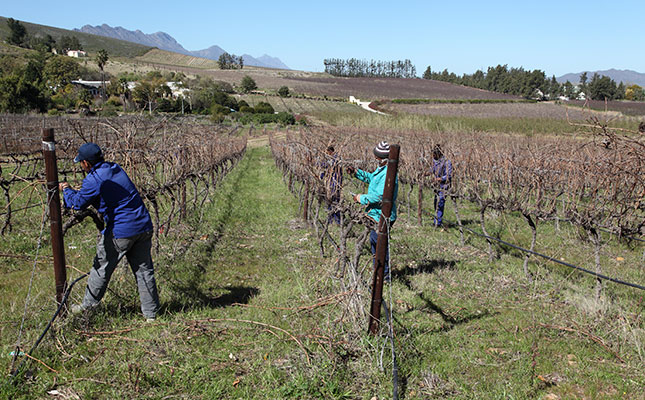
Photo: Glenneis Kriel
The South African government’s blunt approach towards liquor sales bans has caused irreversible damage to the wine and tourism industry.
This was according to the managing director of Vinpro, Rico Basson, who expressed disappointment at the recent Western Cape High Court ruling against Vinpro’s challenge of the constitutionality and lawfulness of the national liquor sales bans.
The court found that government’s regulations were reasonably necessary and incidental to the effective exercise of its powers relating to disaster management of the COVID-19 pandemic.
The court judged Vinpro’s application as moot, as regulations had since changed, refused Vinpro’s application to amend the application and introduce new evidence, dismissed the structure of the state’s argument, and determined that each party should be liable for its own legal costs.
In June this year, the court also dismissed with costs a legal bid by South African Breweries against government’s liquor sales ban.
“The industry has lost more than R10 billion in sales, seen significant job losses and suffered international reputational damage. The only way for wine businesses to recover and rebuild, is by creating an enabling environment for sustainable growth.
“This includes government policies, based on thorough and transparent empirical data, that are consistently implemented and strictly enforced.”
The judges’ criticised the timing of Vinpro’s court applications, but Basson countered that all applications and court documents were timeously submitted.
“Vinpro was at the mercy of a legal process over which it had no control. The court repeatedly postponed hearing dates, or reserved judgement until after restrictions on liquor sales were lifted.”
Vinpro was now considering whether it should appeal the judgement, but initial advice was that an appeal would not achieve much, as it would, in all probability, only be heard in the second half of 2022, he said.
The minister of Corporative Governance and Traditional Affairs, Dr Nkosazana Dlamini-Zuma, welcomed the High Court’s judgement.
She said in a statement that the suspension of the sale and distribution of liquor helped to ease pressure on the healthcare system at a time when it was placed under severe strain because of the COVID-19 pandemic.
Charl du Plessis, CEO of Orange River Wine Cellars, told Farmer’s Weekly that the court’s decision meant that government would be able to initiate further bans on liquor trading in future.
“We feel that liquor trade bans are totally unnecessary, as it is basically used to cover up government’s incompetence and the large number of hospitals that have fallen into disrepair. It also makes it seem like government is doing something, regardless of whether this ‘something’ is improving the situation or not,” he said.











